#pétion
Text
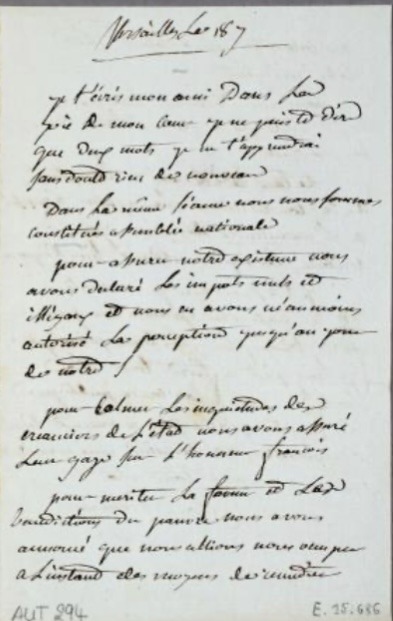

Letter from Pétion to Brissot dated June 18 1789, announcing that the Third Estate has declared itself the National Assembly
Anyone who sees/can transcribe what is says on these? Thought it would be interesting to know…
29 notes
·
View notes
Text
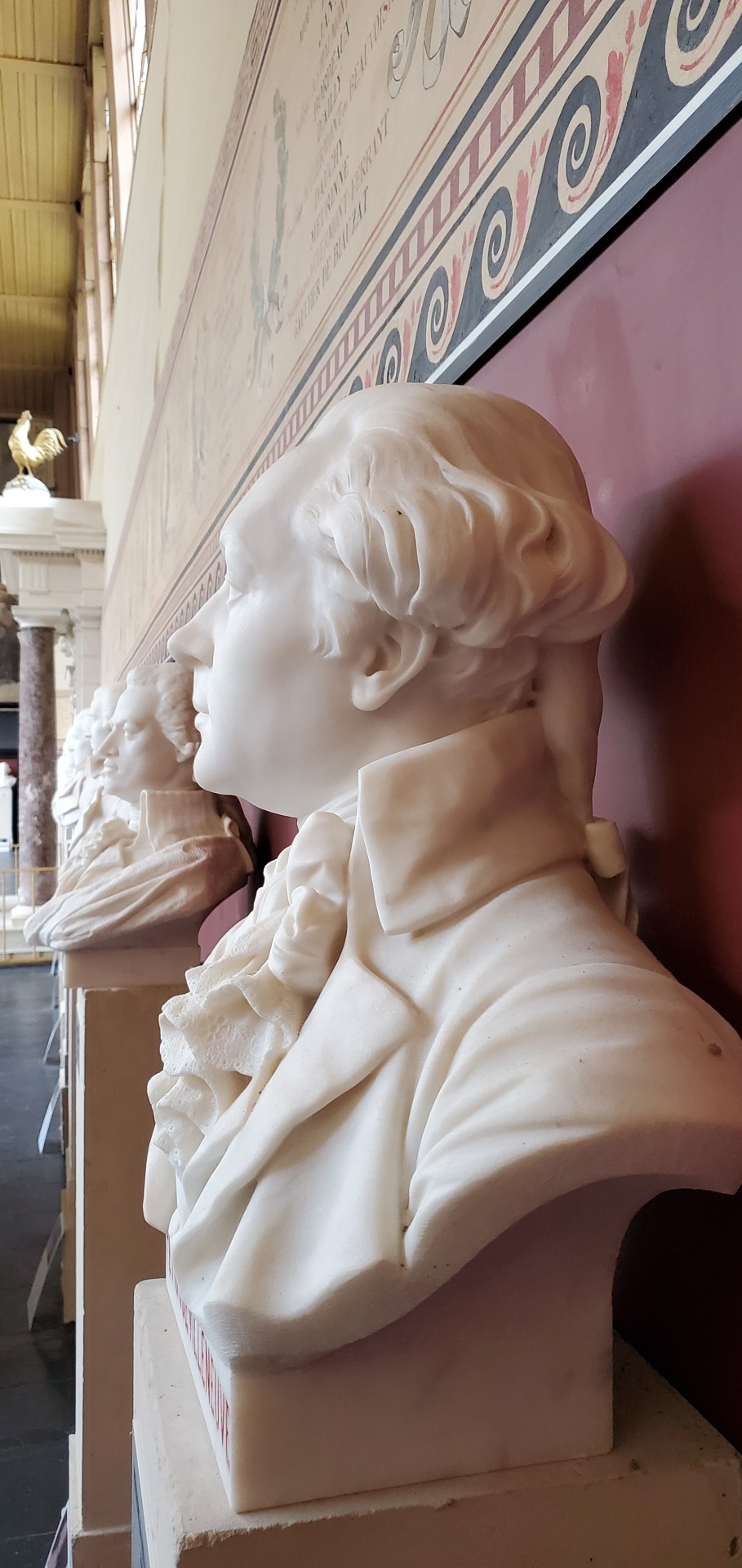
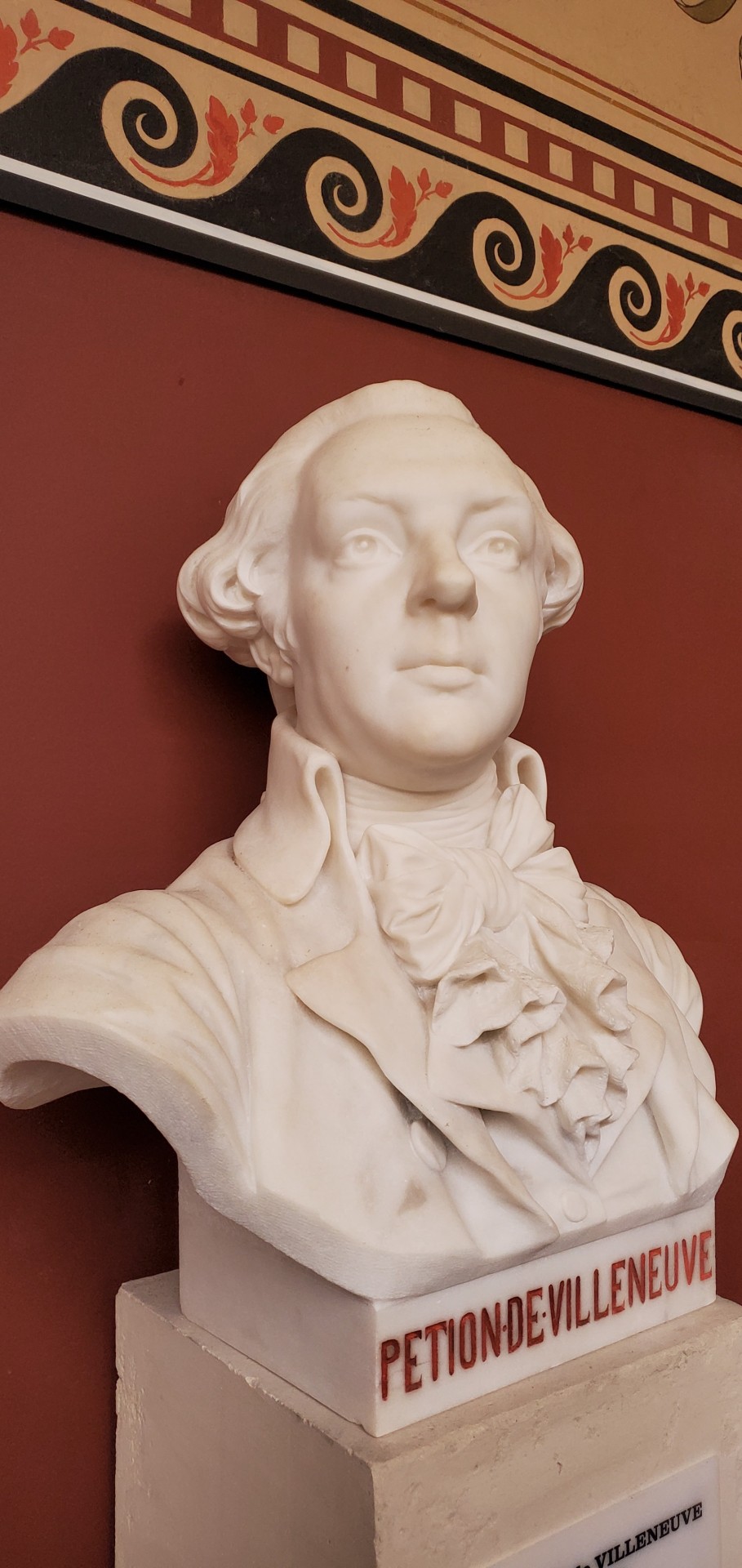
Marvelling at Pétion's cute nose in the Jeu de Paume.
22 notes
·
View notes
Text
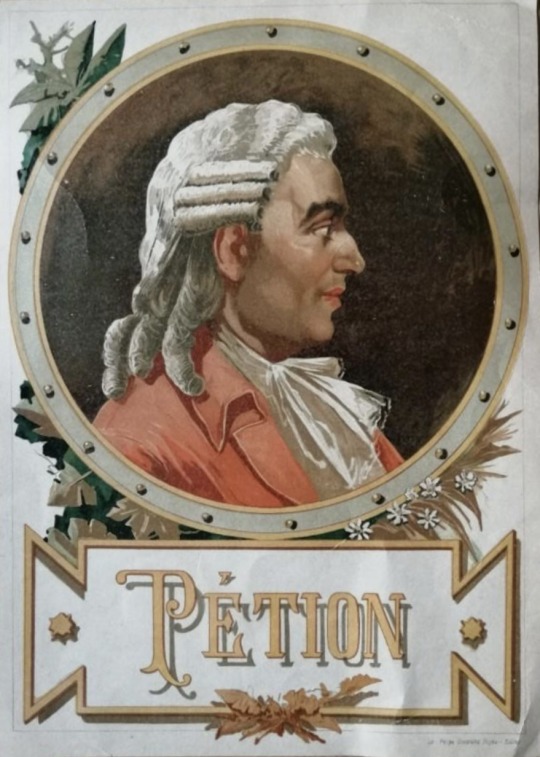
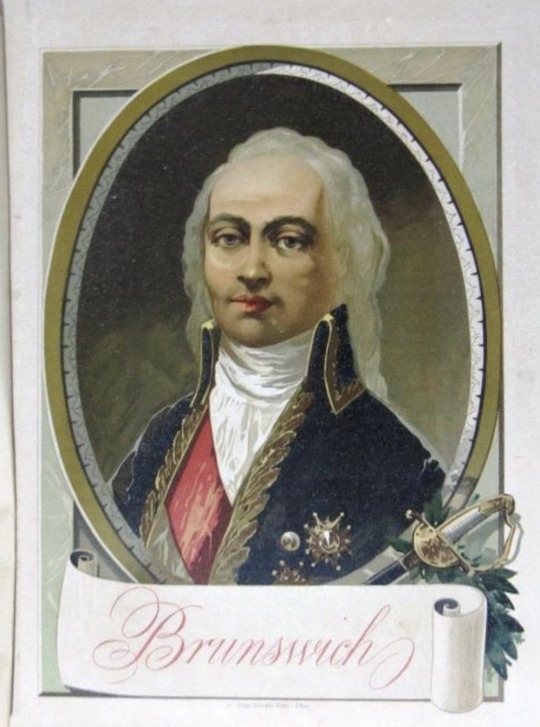
Historia de Europa by D. Emilio Castelar, 1895
4 notes
·
View notes
Text
Me: hmmm my thermidorian propaganda post kinda sucks I want to rewrite it
The petispierre post and the supposed thermidorian propaganda part 2 post in my drafts:

#No no I'm seriously considering it because I feel I skimmed through a lot trying to make it shorter#Part 2 has been halfway through for God knows how long but I'm quite unmotivated with it#As for the petispierre post I want to find this one pétion biography first but I haven't been able to get it
11 notes
·
View notes
Text
¡TODOS A UNA!
Por Juan Manuel Jimenez Muñoz – Ciudadano libre.
En abril de 1793, durante la Revolución Francesa, la izquierda jacobina liderada por Robespierre estaba a punto de alcanzar el poder absoluto. Para ello, aliándose con lo peorcito de la sociedad parisina (exconvictos, ladrones, violadores, asesinos, psicópatas y estafadores) se propuso Robespierre apoderarse de los poderes legislativo, ejecutivo y…
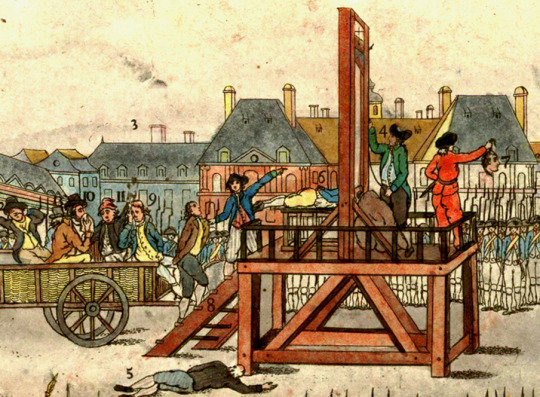
View On WordPress
0 notes
Text
12 Octobre 1802 : Pétion et Clerveaux rejoignirent les rebelles, suivis ensuite par Dessalines et Christophe
12 Octobre 1802 : Pétion et Clerveaux rejoignirent les rebelles, suivis ensuite par Dessalines et Christophe.- #Juno7 #J7Oct2022
« Un peuple sans mémoire est un peuple sans avenir », disait Aimé Césaire. Voici les éphémérides pour ce 12 octobre 2022
12 Octobre 1802 : Alexandre Pétion et Clerveaux rejoignirent les rebelles résistant à la France. Dessalines et Christophe ne tardèrent pas et les suivirent peu après en se ralliant aux rebelles.
12-octobre 1492 : L’expédition de Christophe Colomb arrive en Amérique, et touche…

View On WordPress
0 notes
Note
Is it true that Napoleon Bonaparte used to know and associate with the Robespierre brothers? Like from what I've heard, he was pretty serious about it, to the point that it hampered his career post-thermidor. (It would make the stereotypical depictions of the Terror in Napoleon 2023 pretty hillarious, honestly.)
Yeah, it’s true. According to Saliceti (a Montagnard politician from Corsica), Napoleon was “their man” (1).
The first known mention of Robespierre by Napoleon was on 23 January 1791. He wrote a piece called Lettre à Buttafuoco. Matteo Buttafuoco was a Corsican politician. In it, he writes: “O Lameth! Oh Robespierre! O Pétion! O Volney! O Mirabeau! O Barnave! O Bailly! O La Fayette! This is the man who dares to sit next to you!” (2)
Napoleon was a political ally of the Robespierre brothers. As far as I know, he never met the older Robespierre brother in person, but he did meet and know the younger brother. They were associates and even became friends. Augustin Robespierre wrote to his older brother “the citizen Bonaparte commanding the artillery is of transcendent merit.” (2)
In 1794, Napoleon accepted an “unofficial” position in the Committee of Public Safety’s war office, specifically at the historical and topographical office. While he worked there, he wrote to his brother “I am swamped with work at the Committee.” (3)
This is how Pontécoulant, who oversaw him at the topographical bureau, described Napoleon at this job:
“It was not a mere sinecure that he had accepted, he sometimes worked fifteen hours a day, . . . and the considerable number of memoranda, reports, letters, and documents of all kinds that he wrote . . . would fill several volumes. Never, even during the campaign of 1794, had the topographical office of the Committee of Public Safety . . . deployed such activity; he maintained continuous communications with the leaders of the different armies, and their staffs, astonished, learned from then on to know this nervous style, full of precision, movement and masculine energy.” (4)
It was during this time that he was asked to write a general memorandum on grand strategy. It was titled Sur la position politique et militaire de nos armées de Piémont et d'Espagne (On the political and military position of our armies of Piedmont and Spain). The person he submitted it to was Augustin Robespierre in June 1794.
Frank McLynn’s description of the memoranda:
“Basing his strategy on the writings of Guibert de Bourcet, Napoleon devised a plan that enabled the Army of Italy to advance to the watershed of the Maritime Alps, having secured control of the passes of Col d'Argentière, Tende and St-Bernard. With the enthusiastic support of Augustin Robespierre, who took Bonaparte's memorandum to Paris with him, Napoleon argued that if the French attacked in Piedmont, Austria would be forced to come to the aid of her Austrian possessions and thus weaken her position on the Rhine, allowing the French to strike a knockout blow there. Napoleon's chances of getting the plan accepted looked good, for his new commander-in-chief, General Dumerbion, deferred in all things to the political commissars; Saliceti and Augustin Robespierre, in turn, nodded through anything military that came from the pen of Napoleon.” (5)
Augustin sent Napoleon to Genoa for a diplomatic mission on 11 July 1794. So, the Robespierres were behind the beginning of Napoleon’s long diplomatic career. In fact, Napoleon was still on this mission when he learned about the death of the Robespierre brothers (28 July 1794).
Earlier that year, the younger Robespierre brother had actually proposed that Napoleon take command as head of the Paris National Guard and replace Fran��ois Hanriot in Paris. Napoleon considered it, but decided to keep his post instead.
Hanriot was executed the same day as the Robespierre brothers. Who knows, perhaps the same fate would have happened to Napoleon had he accepted the offer.
Nevertheless, according to Jean Tulard “the 9th of Thermidor opens a difficult period for him”. (2) He was arrested in the south of France for his association with the Robespierre brothers. The order was signed on August 6th, and he was imprisoned for over a week (August 9th-20th).
The fact that Napoleon had been in a foreign country (Genoa) on a mission for the Robespierre brothers at the time of 9 Thermidor was used against him.
According to Patrice Gueniffey, “Napoleon spent his spare time reading the history of Marshal Maillebois’s campaigns in Italy and writing a long, self-justifying memorandum addressed to the representatives […] without saying anything against Robespierre”. (3)
The appeal which released him specified his military acumen. He was considered too crucially important to the war effort to kill or keep imprisoned.
“We are convinced of the possible utility to us of this soldier's talents, which, we cannot deny it, are becoming very necessary in an army that he knows better than anyone, and in which men of this kind are extremely difficult to find.” (3)
So he was released, with his head still attached to his body. But, the situation had definitely changed for him. The representatives were cautious about him and refused to reemploy Napoleon as commander of the artillery. Nevertheless, he continued to work on the campaigns as part of the staff of General Dumerbion, and working his way up from there.
In 1797, Napoleon evoked Robespierre in a speech in Ancona to a surprised dinner party. He defended Robespierre for his “alleged crimes” and said of him:
“Since its origin,” he tells us, “France has had only one strong government: that of Robespierre.”
The impression of horror that the memory of this man had left on everyone’s minds was so recent, so profound, that it is difficult to imagine the painful surprise this opinion excited, and with what ardor it was opposed. Far from abandoning it, General Bonaparte tenaciously supported it:
“What,” he said, “is a strong government? It is one which has a well-determined useful purpose; the firm will to achieve it; the force capable of making will triumph; finally, the intelligence necessary to properly lead this force. Let’s examine if Robespierre combined all these advantages: What was his goal? The triumph of the revolution. He felt that a counter-revolution would be more bloody, would lead to more cruel, more lasting evils than those that our revolution had demanded and would still require. So he wanted to accomplish it at all costs.” (6)
Did this association have an effect on Napoleon’s career? I would say it definitely impacted his reputation and the perception everyone had of him.
To Madame de Staël (and eventually Victor Hugo), Napoleon was “Robespierre on horseback” (2). Mallet du Pan calls Napoleon “a Corsican terrorist” (7). The royalist pamphleteers had titles like “Robespierre and Buonaparte or the two tyrannies” and “The Jacobins and Buonaparte or historical essay on the alliance of the two tyrannies which oppressed the French nation” (2). In them, Napoleon was described as a “worshiper of Marat, accomplice of Robespierre, vile complacent of Barras” (2). To Metternich, “Napoleon seemed to me the incarnation of the Revolution” (8). He tried to warn the other countries in Europe against making peace with France, because, to him, “No peace is possible with a revolutionary system, whether with a Robespierre who declares war on chateaux or a Napoleon who declares war on Powers” (9). William Pitt the Younger spoke of the “jacobinism of Robespierre, of Barrere” and called Napoleon “the child and the champion of all its atrocities and horrors” (10).

This is a royalist caricature of Napoleon created by Pierre-Marie Bassompierre Gaston. The caption says “One is always faithful to one's first love”. (Source)
Here is Napoleon’s stance on Robespierre:
“Robespierre died because he tried to stop the effects of the Revolution, and not as a tyrant. Those who wanted to bring him down were crueler than he was: Billaud-Varenne, Collot d'Herbois, etc. He had against him Danton's party, which was powerful and immense. Probably he could not have acted otherwise. I believe that Robespierre was without ambition. . . . Everything I read in the Moniteur teaches me nothing, but it confirms me in the opinion that I had, and settles me in it even more. To be sure, Robespierre was not an ordinary man. He was very superior to everything around him. His discourse on the Supreme Being proves it. Disgusted by what he was hearing, he felt the necessity of a religious system among people who did not want anything, either religion or morals. Morality had to be raised up again. He had the courage to do it and he did it... That was great politics. No doubt he shed blood; that is the other side of the coin, but he is certainly less guilty than Tallien, who slaughtered Bordeaux, or Fréron whom I saw in Marseille taking poor unfortunates by the collar to have them shot. Those men were real killers. Had he [Robespierre] not succumbed, he would have been the most extraordinary man who appeared.” (3)
Sources:
(1) Adam Zamoyski, Napoleon: A Life
(2) Jean Tulard, De Napoléon et de quelques autres sujets: Robespierre vu par Napoléon
(3) Patrice Gueniffey, Bonaparte: 1769–1802
(4) Le Doulcet de Pontécoulant, Souvenirs historiques et parlementaires
(5) Frank McLynn, Napoleon: A Biography
(6) J. P. Collot, La chute de Napoléon
(7) Albert Sorel, L'Europe et la Révolution française, V. 5
(8) Memoirs of Prince Metternich 1773-1815 Vol. 1
(9) Henry Kissinger, A World Restored: Metternich, Castlereagh and the Problems of Peace 1812–1822
(10) The speeches of the Right Honourable William Pitt, in the House of Commons, V. 3
#Napoleon#napoleon bonaparte#napoleonic era#napoleonic#first french empire#19th century#french empire#france#history#asks#my answers#answers#ask#augustin robespierre#robespierre
79 notes
·
View notes
Text
Simonne Évrard's speech of 8 August 1793 in the National Convention
"I am not here to ask you the favors of cupidity that claims and craves for indigence. Marat’s widow just needs a grave. Before I get to the relieving end of my tormented life, I come to ask you for justice towards the new attacks committed against the memory of the most intrepid and outraged of the people’s defenders. These monsters, how much gold did they lavish! How many hypocritical pamphleteers were paid to put his name to shame! With such hateful rage, they tried so hard to give him a colossal political existence and a detestable celebrity, in order to dishonor the people’s cause that he proudly defended. This day, still stained by his blood, they persecute him to his grave; some other day, they still dare to murder his memory. They are even trying to depict the monster, who pierced his chest with the parricide iron, as an intriguing heroine. In this circle we see the vilest of them all, the Carra, the Ducos, the Dulaure, the shameless praises in their periodicals to encourage their peers to slaughter what is left of the defenders of liberty. I do not talk about the vile Pétion who, in Caen, during a meeting with his accomplices, dared to say that the murder was a virtue.
Soon enough the foolish treachery of the conspirators, who pretend to honor the civic virtues, will make the infamous publications grow, where the horrible murder is presented in favorable ways and the martyr of the patrie is disfigured by the most hideous convulsions.
But here it is the most wicked of their schemes: They bribed some foolish writers who shamelessly usurp his name and tarnish his principles to immortalize the empires of lies which he was victim of! Cowards! First, they flatter the people’s pain to get their praise, then they speak the language of patriotism and morality so that the people believe to still be listening to Marat; but all of this is just to slander the most zealous defenders who have protected them. It is to preach, in Marat’s name, the exaggerations that his enemies attributed to him.
I denounce two men in particular, Jacques Roux and Leclerc, who claim to carry on his patriotic papers and make his shadow talk to insult his memory and to betray the people. After spouting revolutionary platitudes, they encourage the people to outlaw the government. It is in those occasions that they use his name to stain in blood the day of the 10th of August, because his sensitive soul, devastated by the sight of the crimes of tyranny and the uneasiness of humanity, sometimes let out some rightful curses towards the people’s oppressors and public leeches. They try to preserve the parricide lie that persecuted him and made him look like a foolish apostle of anarchy and chaos. And who are these men that claim his place? It is a priest, who the day after the faithful deputies triumphed over their cowardly enemies, came to insult the National Convention through a seditious and wicked speech. There is another man, no less perverse, who is associated with the mercenary furors of said impostor. What is important to remark is that these two men are the same who had been denounced by him at the Cordeliers’ club just a few days before his death as people paid by our enemies to create public disorder and, on the same occasion, they were also formally expelled from this popular society. What is the aim of this perfidious faction that fuels these criminal intrigues? It is to vilify the people who honor the memory of the one who died for their cause. It is to slander all the friends of the patrie, whom it has designated as Maratists; to deceive all the French people across the whole republic, who gather for the reunion of August the 10th, by presenting them their perfidious writings, in which they preach the teaching of the very people’s representative they slaughtered. It is to cause disturbance in these solemn days through some disastrous catastrophe.
God! What will become of the people? If these men can usurp their trust! What is the deplorable condition of their intrepid defenders if death itself cannot avoid them the fury of their murderers! Legislators, for how long would you endure it if crime insulted virtue? Where does this privilege come from, of English and Austrian emissaries to trap public opinion, to give daggers to the defenders of our laws and to know the founding valor of our raising republic? If you let them go unpunished then I denounce them all here to the French people, to the universe. The memory of the martyrs of liberty and the heritage of the people; that of Marat is the only good deed left to me, I devote to his defense the last days of a languid life. Legislators, avenge the patrie, the honesty, the misfortune and the virtue, striking at the most cowardly of all the enemies.”
Original in French
I personally did the translation in English. Let me know if I made some mistakes or if some parts need revision!
Last edit: 31/10/23
41 notes
·
View notes
Text

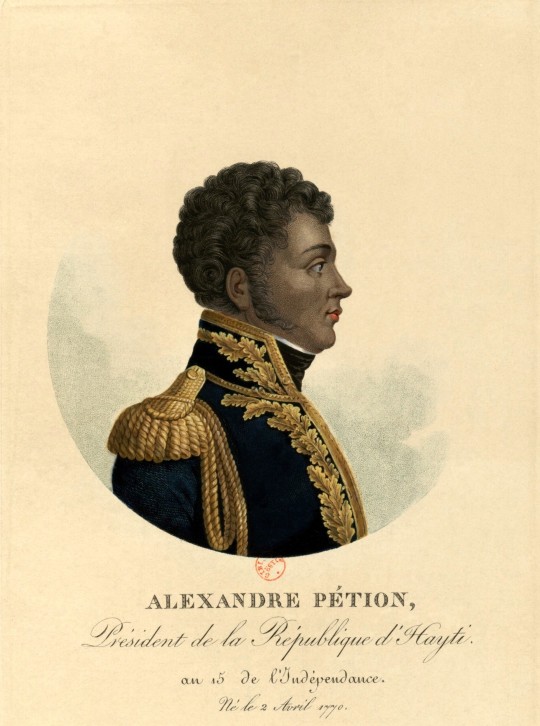
Juliette Récamier
a. “Her skill at posing on couches was such that she's given her name to the recamier style of chaise longue.”
Alexandre Pétion
[no propaganda submitted]
11 notes
·
View notes
Text
he’s a 10 but he’s best friends with that war-mongering rat bastard who packed the king’s ministry with his own lackeys
23 notes
·
View notes
Text
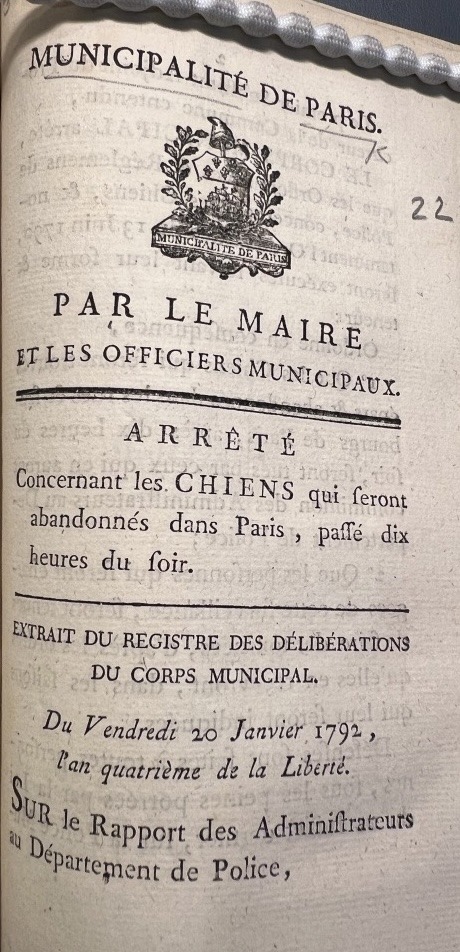
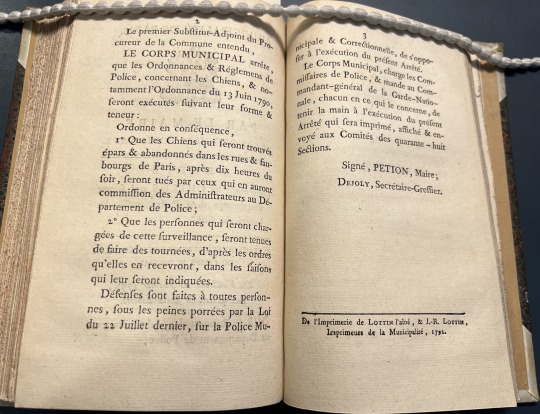
The first deputy substitute of prosecutor of the Commune having been heard, the municipal body decrees that the police ordinances and regulations concerning dogs and in particular the ordinance of June 13 1790, will be executed according to their form and content:
It consequently orders,
That dogs found abandoned and dispersed in the streets and suburbs of Paris, after ten o’clock in the evening, shall be killed by those who are commissioned by Administrators of the Police Department.
That the persons who will be responsible for this surveillance shall be required to make rounds, according to the orders they receive, in the seasons which will be indicated to them.
All persons are prohibited, under the penalties imposed by the law of July 22 last year, on Municipal and Correctional Police, from opposing the execution of this decree. The municipal body, orders the police commissioners, as well as the commander-general of the national guard, to take, each as far as they are concerned, the lead in the execution of this decree which will be printed, posted and sent to the committees of the forty-eight sections.
Signed: Pétion, Mayor
Dejoly, Court Clerk
Order regarding the dogs that are abandoned in Paris passed ten o’clock in the evening, passed by the mayor and municipal officers of Paris on January 20 1792, TYSM! for sharing, @nigrit !!
#dangit jérôme i thought you liked dogs#pétion#jérôme pétion#frev#french revolution#imagiene having your job consist of killing dogs… 😢🐶#the REAL reason pétion and robespierre broke up😨😨#what it fits the timeline
21 notes
·
View notes
Text

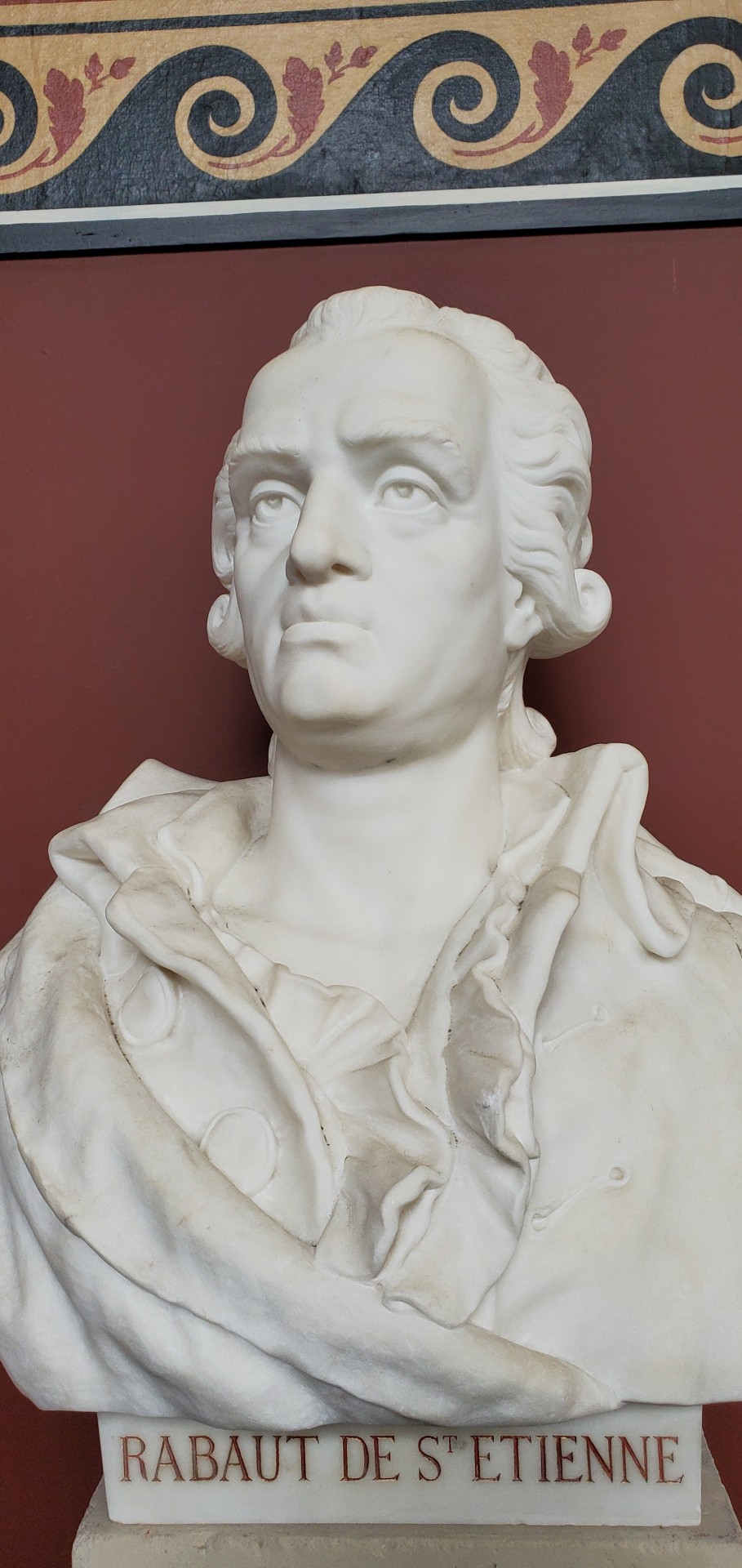
Sassy Guillotin and grumpy Rabaut Saint-Étienne from the Jeu de paume room in Versailles
20 notes
·
View notes
Note
I’m sorry this is more of an info dump than an ask but the talk about Camille and Sillery (and also him being Danton lite) reminded me of La Belle Pamela which is an old biography about Pamela Fitzgerald/ Lady Edward Fitzgerald I read awhile ago. She was the not officially adopted daughter of Mme. Sillery and also speculated to be secretly actually her and Orléan’s child tho the book disputes this. The book quotes a couple of letters between the Sillerys and Camille including one where he and Lucille are invited to an apology dinner at the Sillerys with Pamela, Robespierre and Péthion (which I assume is Pétion spelled incorrectly) because the Sillerys assumed Camille would be mad that Barére was made guardian of Pamela instead of him. Camille also says some weird things about a Russian dance Pamela (who I believe was 15) does during the dinner. I wonder if this is the “proposition of their daughters”Camille was talking about and also if part of the reason Robespierre was mad at Camille for mentioning being involved with the Orléanists is because at the beginning of the Revolution he was more involved with them than he’d like publicly shared lol (I can’t post screenshots as an anon but the parts of the book I’m talking about start at about page 208 and the biography is free on Google books)
This is a wild ride TM from start to finish, and yeah, I will check it out, but it only made me realize how little I actually know about Camille's shenanigans. I know some stuff, but there seems to be so much mess I don't know about (and this type of mess and gossip is what I love to learn about). So, if anyone wants to share stuff or sources, please do!
33 notes
·
View notes
Text
Btw we should do adopt-a-flop but with girondins
I'll pick pétion
12 notes
·
View notes
Text

kid named Pétion Nationale Pique Lanterne Assignat Bonnet-rouge:
16 notes
·
View notes
